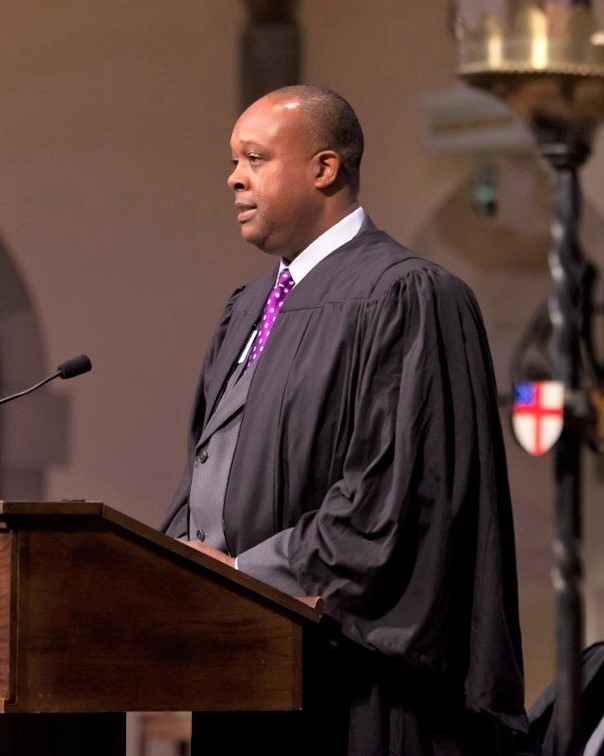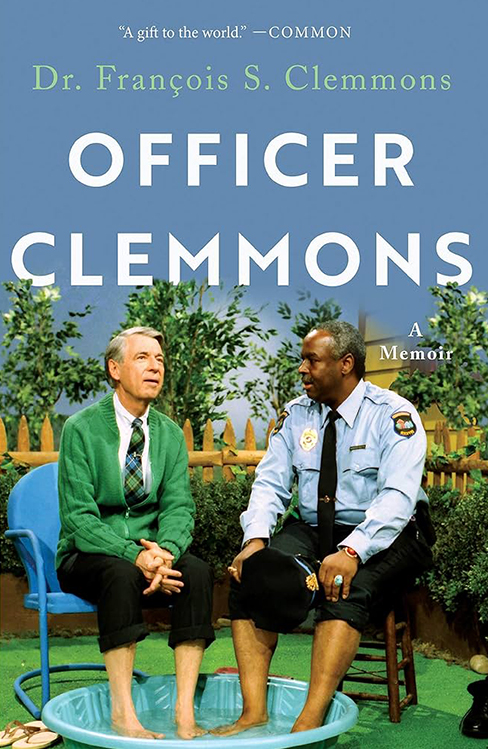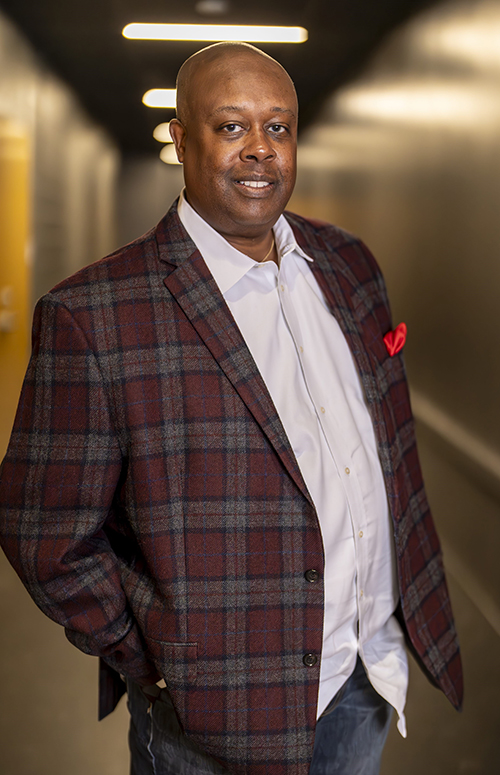Sewanee Review Story
After organizing and leading a march and speaking at a rally and call to action in Sewanee following the George Floyd, Armaud Arbery, and Breonna Taylor murders, Adam Ross, the editor of The Sewanee Review, the oldest literary quarterly in the country, asked if I would write an essay for a literary series he created called The Corona Correspondences.
The pandemic was in full swing, and Adam was acutely aware of the isolation and loneliness that people were feeling. The rationale for creating The Corona Correspondences was to give readers an opportunity to read encouraging and hopeful stories from authors and other thought leaders about how they were experiencing the pandemic.
Manuscripts in Process
Getting to Wisdom
I became inspired to write Getting to Wisdom after I’d given a speech to a large group of students at a well-known university. The organizer asked me to reflect on my life and career and share some of the essential lessons I’d learned growing up in a small, rural town in Tennessee, where, after graduating from high school, I became the first in my family to attend and graduate from college and graduate school. After college, I went on to earn a coveted position as a consumer banker at one of the largest banks in the country. After enjoying three successful years in banking, I left to pursue a graduate degree. Following graduate school, I worked as a pediatric social worker serving young children at a cutting edge and internationally known bone marrow transplant program. Each of my previous work experiences prepared me to then become the dean of student affairs at an Ivy League university.
In my speech, I talked about twelve lessons I’d learned that shaped my personal and professional journey. These lessons were inspired by a passage I’d stumbled upon by poet Ralph Waldo Emerson, who once wrote, “I hate quotations, tell me what you know.” Instead of coloring my speech with someone else’s quotes and cliches, I produced an original list of twelve values that guide me toward becoming a wiser and more authentic person. It’s a process I call getting to wisdom.
As I named each of the twelve lessons that guide my life, I brushed over the personal stories that informed each lesson, because it would have resulted in a long speech. I buried the stories in a safe corner of my mind until the timing was right to share them publicly. That’s why books are written, I reasoned.
I turned the lessons I’ve learned into a memoir filled with encouraging wisdom stories that I want to share with people who might be searching for a path that might lead them toward their own authentic truth. Some of the stories are humorous, some are heartwarming, and a couple of the stories offer practical solutions for living a simpler life and ways to think about using the creative side of your brain.
Reliving these stories required doing some personal growth work and having to revisit several painful life events. Resurrecting certain specific moments from my past revealed a still tender heart that hadn’t quite healed. Writing and finishing the manuscript allowed contemplative space for personal healing and truth-finding, which is central to the process of getting to wisdom.
I believe that life is about sharing, particularly when there is a lesson that has been learned that might be helpful to someone else. This is why I’m sharing these important life stories, as I continue my journey. The stories in Getting to Wisdom will inspire readers to search for deeper meaning in their lives and discover ways to use their own stories to uplift others.
Nana's Story
“Your mother is always with you. She’s the whisper of the leaves as you walk down the street. She’s the smell of certain foods you remember, flowers you pick, the fragrance of life itself. She’s the cool hand on your brow when you’re not feeling well. She’s your breath in the air on a cold winter’s day. She is the sound of the rain that lulls you to sleep, the colors of a rainbow; she is Christmas morning. Your mother lives inside your laughter. She’s the place you came from, your first home, and she’s the map you follow with every step you take. She’s your first love, your first friend, even your first enemy, but nothing on earth can separate you–not time, not space…not even death.” – Deborah R. Culver, poet, lyricist, author.
Deborah Culver’s poem paints a perfect picture that describes the relationship I had with my mother, and it formed the backdrop of my story of love and respect for my dear Nana.
After working at Middlebury College for eight years and rising in rank and status to become Acting Dean of Student Affairs, I landed an opportunity of a lifetime when I began working at Yale as Dean of Student Affairs and then assumed the added title of Associate Vice President for Student Life. Serving students at Yale put to great use my people skills and provided the perfect opportunity for me to flourish as the creative soul that I am. Carrying out the duties as the Dean of Student Affairs was an honor. It was my dream job.
The eight years I worked at Yale occurred at a time when my parents’ health began to decline. My father’s lung cancer returned after his being in remission for seven years, and we started seeing signs of my mother’s failing memory, as her ability to navigate her days coherently diminished.
The distance between Connecticut, where I worked, and Tennessee, where I grew up and where my parents lived, became too far a distance to be helpful to them in any meaningful way during their time of need. I needed to find a better solution.
When my father died, leaving his wife of 49 years, life would never be the same for Nana. Life would never be the same for me, as well.
Nana’s Story is a memoir that is as much about a son caring for his mother, as it is about a mother’s love for her son. It’s a touching and intense story of love, loss, and resolve.
When Human Paths Converge
The imagination of a boy is healthy, and the mature imagination of a man is healthy; but there is a space of life between, in which the soul is in ferment, the character is undecided, the way of life uncertain, the ambition thick-sighted: thence proceeds mawkishness. – John Keats, Endymion
Middleton is a small college town nestled between Vermont’s Green Mountains and the Adirondacks. A man and a boy are brought together in the most unusual way, and their lives are never again the same.
Geoffrey is a teenage boy who’s moved with his mother from Hawaii to Vermont. Due to his mother’s poor health, she struggles to care for him. Well-meaning town residents alert the department of social services when they notice that Geoffrey never goes home and spends more time at his friends’ homes than his own, often staying over, even during school nights. Geoffrey’s grades also plummet and his teachers weigh in on their concerns. The folks at the department of social services determine that Geoffrey needs to be placed in a safe home with a caring family who will work with him to improve his grades and his outlook on life. Multiple attempts to get him in a good home have failed, as Geoffrey has not connected with any of his prior placements. In a small, rural town like Middleton, finding the right fit for Geoffrey has proven difficult.
Milt recently completed his first year as a student life dean at Middleton College, after having moved to Middleton from North Carolina, coincidentally only a few months after Geoffrey arrived with his mother. As a southerner who grew up in Tennessee, Milt is still adapting to fourteen inch snowfalls and living in New England. He is single and has no family connections in Middleton. His work is his companion.
The county fair is the most attended social event of the summer. Folks from all over the county converge in a large, empty field on a farm that has been transformed into a carnival-like setting, where there are rides, games, and many food options. Farmers come to the fair and enter their most prized livestock into competitions, and bakers enter their creations into the pie and cake baking contests, hoping that the judges are partial to their confections. Everyone that enters the various competitions is hoping for a chance to secure a year’s worth of bragging rights among their friends.
Milt attends the fair for the first time to see what all the fuss is about. He takes his college basketball teammate, Matt, who along with his wife, Sam and their baby daughter, Heather, are his first out of town visitors. Geoffrey and three of his friends see Milt shooting baskets with Matt to win a teddy bear for his little girl, Heather. The young teenagers, captivated by Milt’s tall stature, strike up a conversation with Milt and Matt, asking many questions about what it’s like to play college basketball.
Months later, a social worker contacts Milt and asks if he is willing to come to the Department of Social Services, because there was a boy who wanted to meet him. Curious to know the nature of this random request, Milt agrees, and it turns out to be Geoffrey, one of the boys he’d met at the county fair. Milt believes that Geoffrey wants to talk about basketball, but he has other ideas. The social worker explains to Milt that Geoffrey needs to be placed in a good home, and that Geoffrey wants Milt to be his caregiver.
Basketball brings Geoffrey and Milt together, and a new way of life emerges for both of them. Before now, Milt and Geoffrey had lived independent lives, for different reasons, both of them coming and going as they pleased and having no responsibility to anyone else. As their relationship develops, they realize the difficulties of giving up their independence and living as a family. They learn that they must work harder to sustain their relationship.
Based on true events, this is a gripping and tender story of a man and the boy who asks to live with him. Readers will find themselves cheering for Milt and Geoffrey, as they both grapple with the loss of their independence, yet discover that something beautiful happens when human paths converge.
Menships
The idea for this book came after watching The Oprah Winfrey Show many years ago. One of Oprah’s guests was Sociologist Jan Yager, Ph.D., who had written a book called, Friendshifts, the term she coined to describe the power of friendships and how they “shift”over a lifetime. Dr. Yager’s book also addresses friendships that dissolve when there is a conflict. While Dr. Yager’s book doesn’t delineate between male and female friendships, Oprah’s show clearly emphasized women’s friendships.
Two women, Barbara and Susan were featured on Oprah’s show that day. They had been friends for twenty years, but they hadn’t spoken to each other for over four years, because of an argument they had when planning Susan’s wedding.
Halfway through the show, I believe I heard Oprah suggest that men can’t or don’t have the type of deep friendships as women. Though it was not said, I also interpreted Oprah’s statement to indicate that male friendships are superficial. If I heard her wrong or misinterpreted her statement, I stand corrected. Still, I’d heard other women voice a similar sentiment in the past, so perhaps it was more of a universal feeling than I’d imagined. The implication that friendships that men have with other men can’t be as deep and meaningful as those that women have nagged me, and I began to think about my own male friendships.
When I started my project, I made a list of all the boys and men that I considered close friends through the years, and I began writing about them and the quality of my relationship with each of them. I wrote each chapter to demonstrate to myself and to anyone who picks up a copy of my book that men can and do have sustaining friendships that might endure for decades or for a season, and in both instances, they can be loyal and rewarding.
The stories in Menships begin with the funny and sad story of my very first childhood friend, Patrick and end with François, a dear friend, confidante, and mentor. Men who read Menships will feel compelled to reminisce about their own friendships. I anticipate that women who read the book will attest that not all friendships among men are superficial, that they can be lasting and fulfilling and will put to rest any notion to the contrary.
Selected Speeches
- Black Men’s Union Induction Ceremony
- Sustaining the Moral Compass of College and University Students
- What is a Leader?
- Belonging, Resilience, and Gratitude
- A Call to Action
- On Becoming an Excellent Black Man
- A Change Has Come
- The Evolving Role of Student Affairs in the 21st Century: An American Perspective
- There is No Place for Racism at Yale (or anywhere)


Recommended Memoirs
- Officer Clemmons, A Memoir by Dr. François S. Clemmons
- Anne Frank: The Diary of a Young Girl
- Becoming by Michelle Obama
- Tuesdays with Morrie by Mitch Albom
- I Know Why the Caged Bird Sings by Maya Angelou
- Angela’s Ashes by Frank McCourt
- What We Carry by Maya Shanbhag Lang
- A Promised Land by Barack Obama
- The Beautiful Struggle by Ta Nehisi Coates
- ‘Tis by Frank McCourt
- Unprotected by Billy Porter
- Finding Me by Viola Davis
Marichal Gentry Quotes
“In addition to the broad characteristics of race and ethnicity, diversity is the substance of all the various ways we present ourselves, our thoughts, and our beliefs. In practice, it’s the manner in which we seek to understand our world and learn from others not like us.” – W. Marichal Gentry
“Some people are all shoes with no sole (soul).” – W. Marichal Gentry
“PHATT” = Play Hard All The Time. – W. Marichal Gentry
“This is MY Peak Time. A time when flourishing, learning life’s lessons, and mastering academic material are of the utmost importance to me. Therefore, I will ignore the tags and stereotypes that are given to me by society, since only I know what I have the ability to become. I am not bothered when society predicts, but only I can determine what I will, can, or cannot accomplish.” – W. Marichal Gentry
“Lead with courage. Create a transformative vision. Motivate others with passion. Respond with compassion and thoughtfulness. Find joy in your work and serve others humbly.” – W. Marichal Gentry

